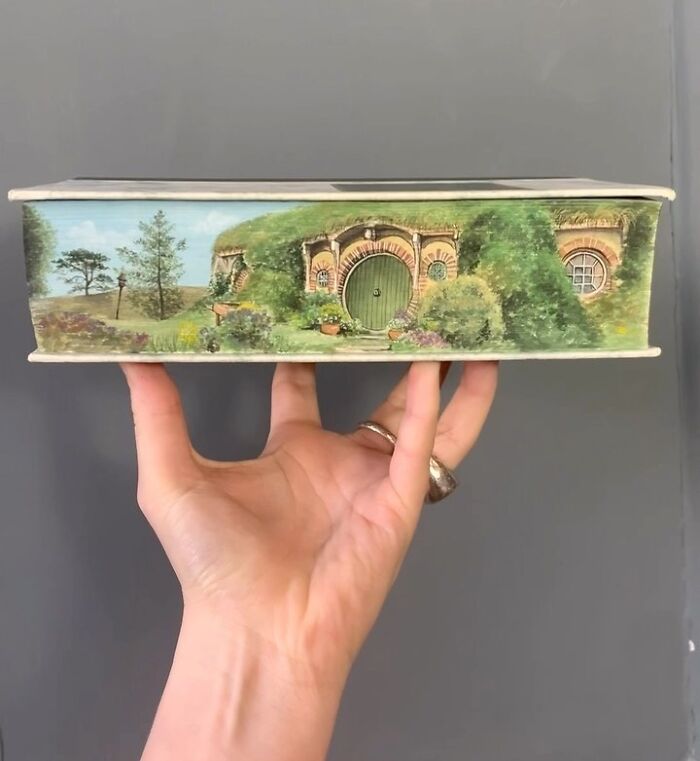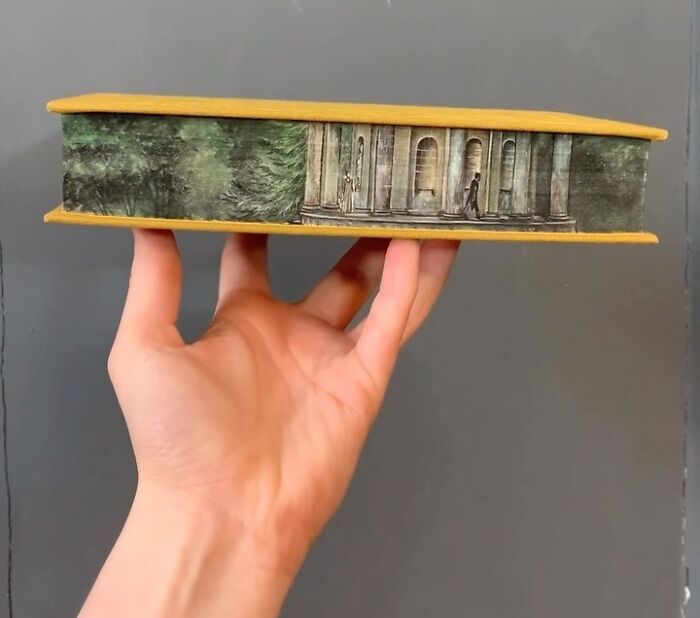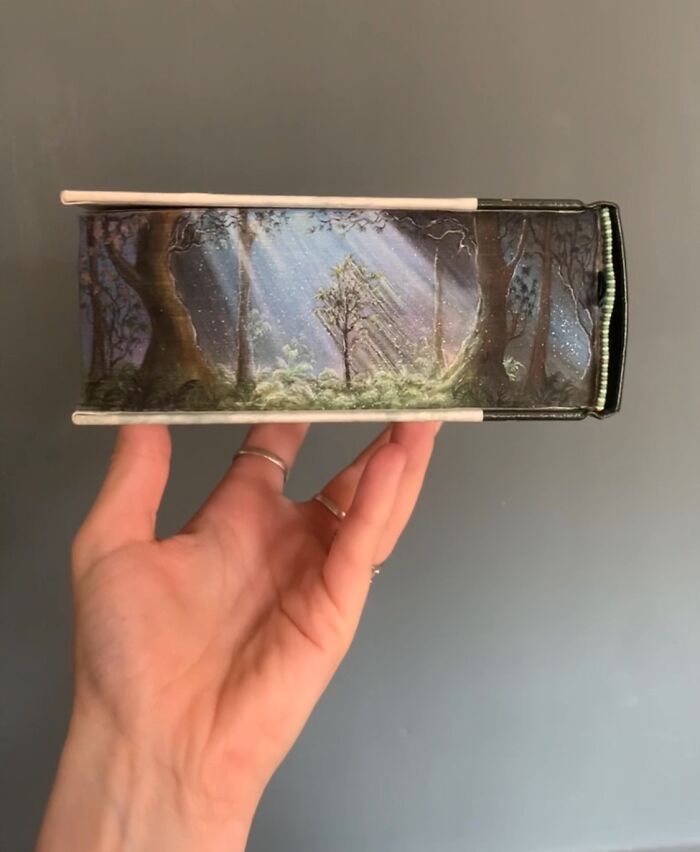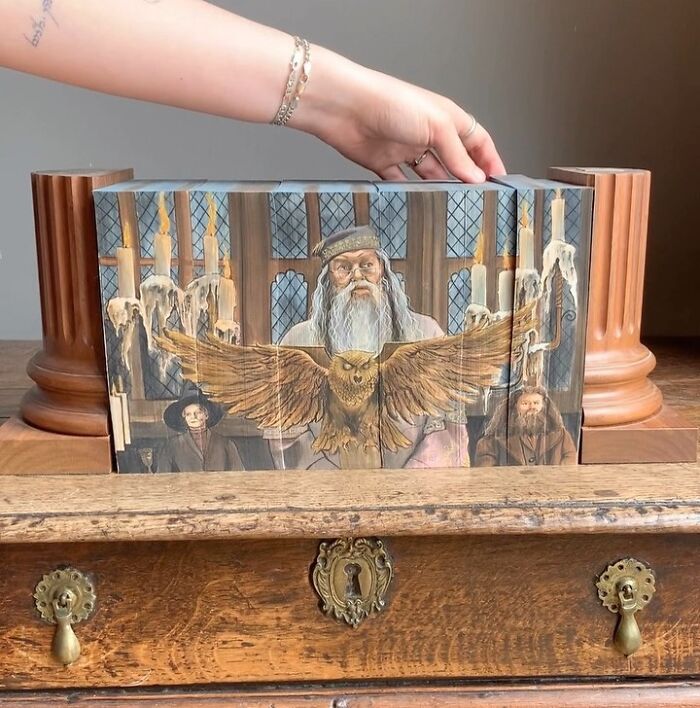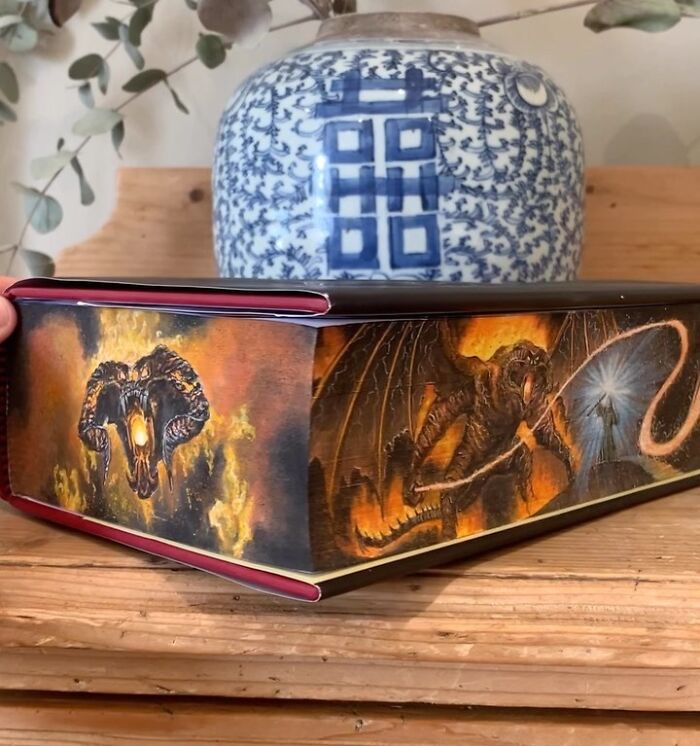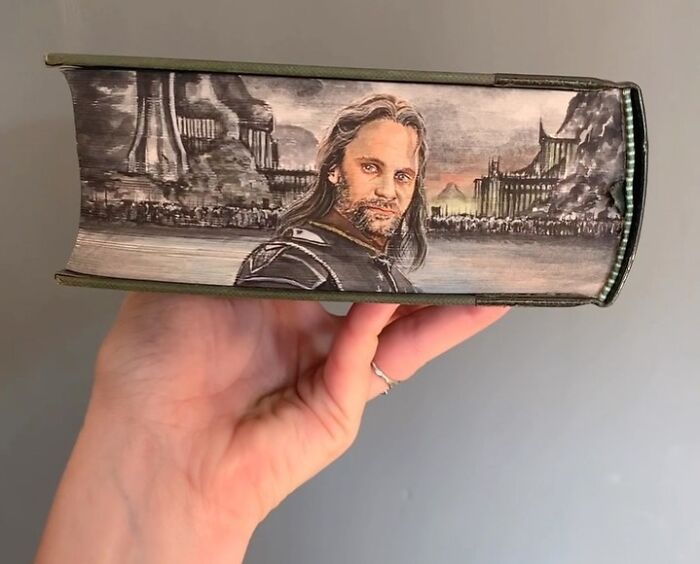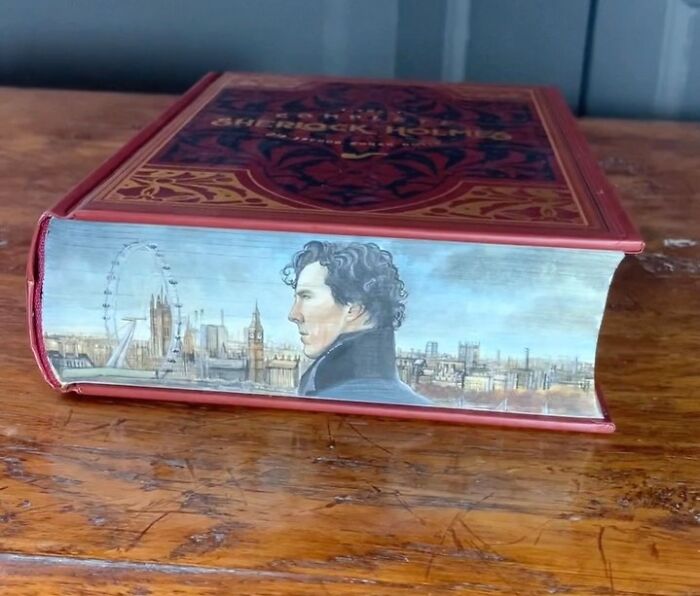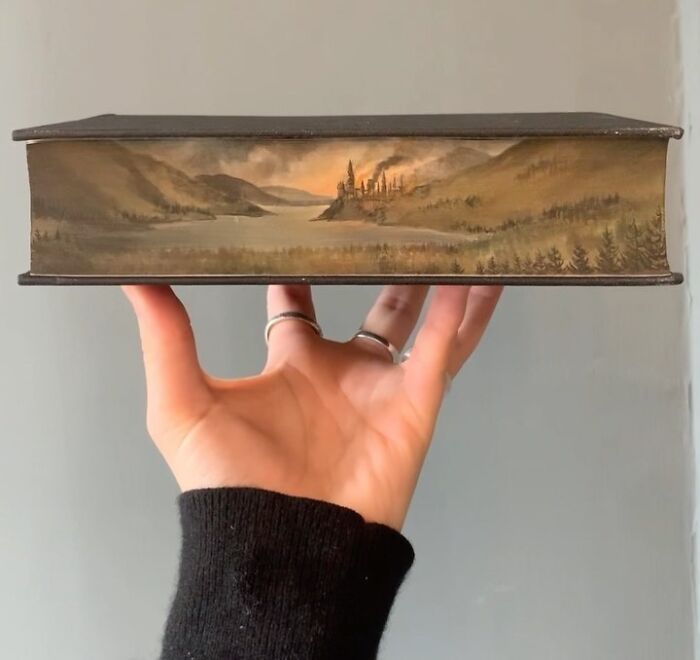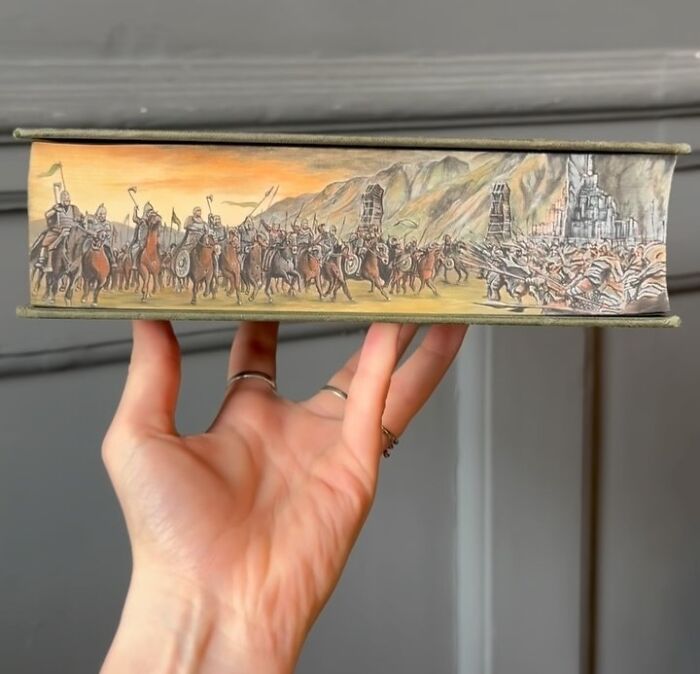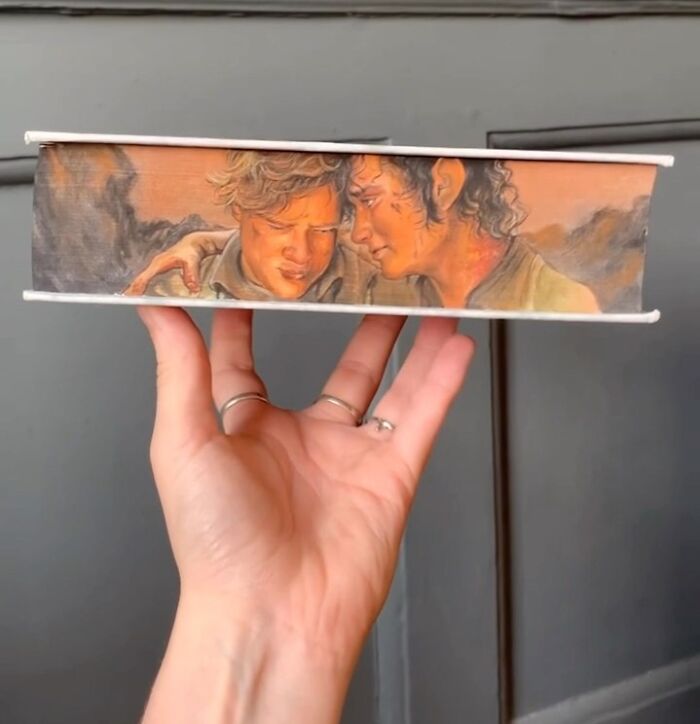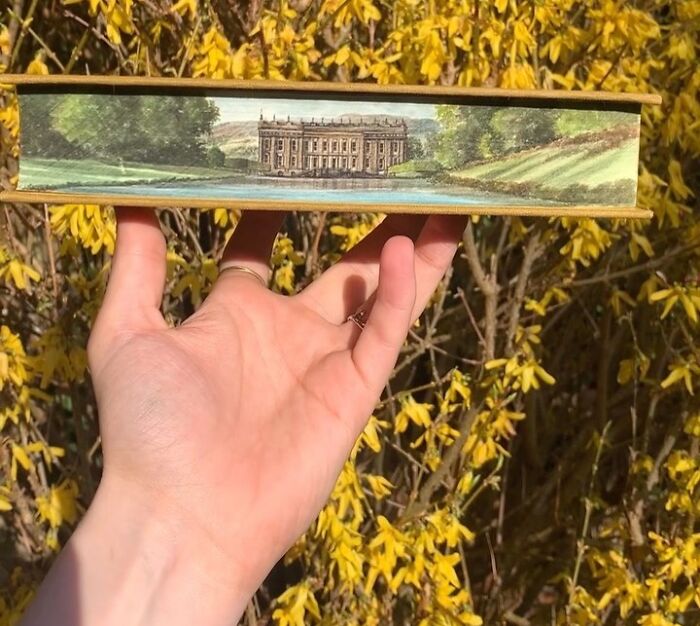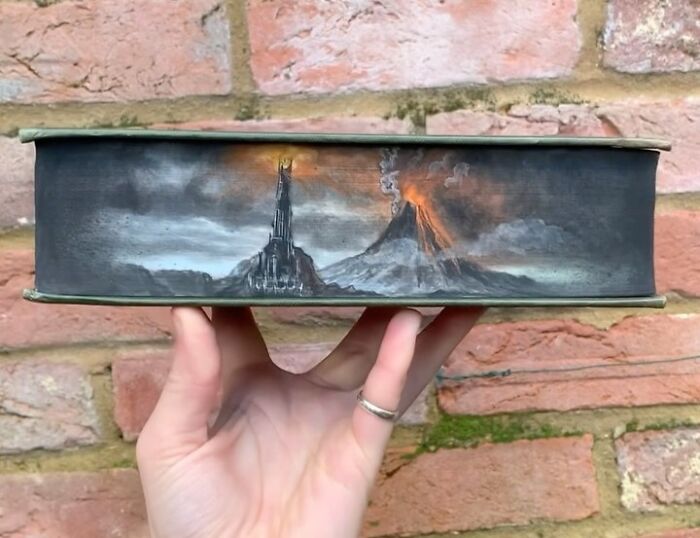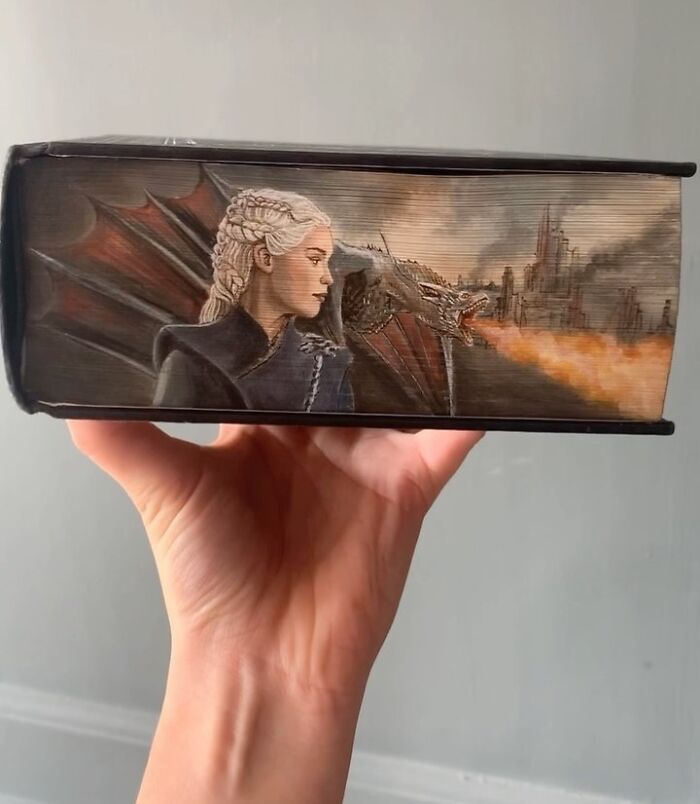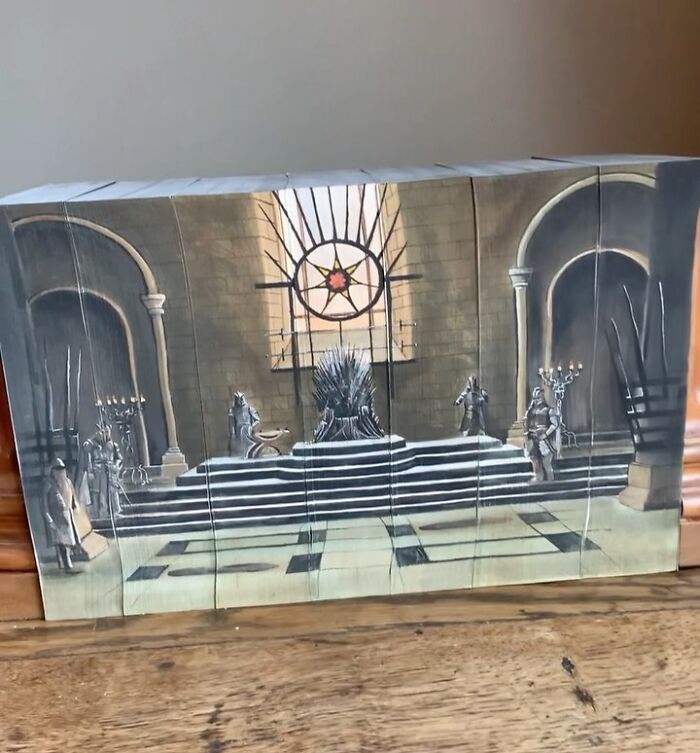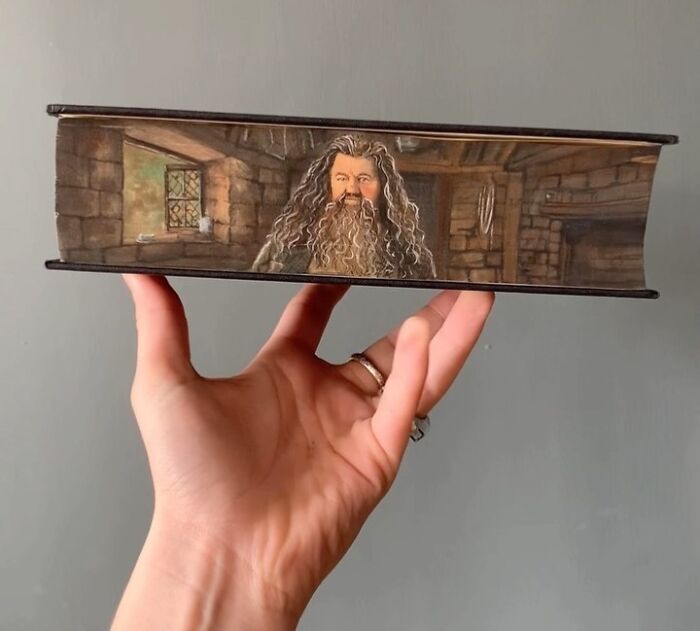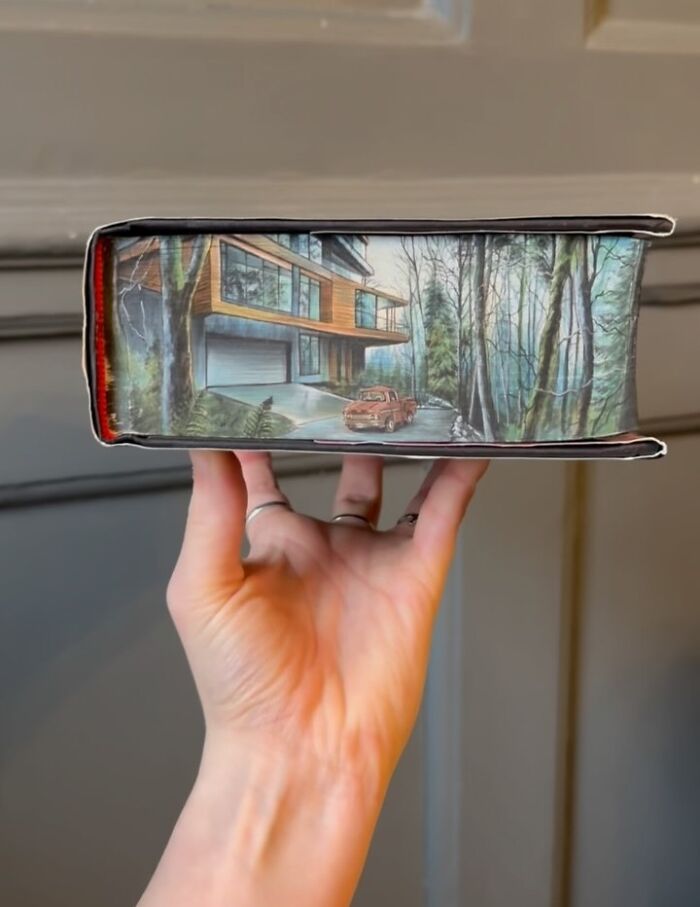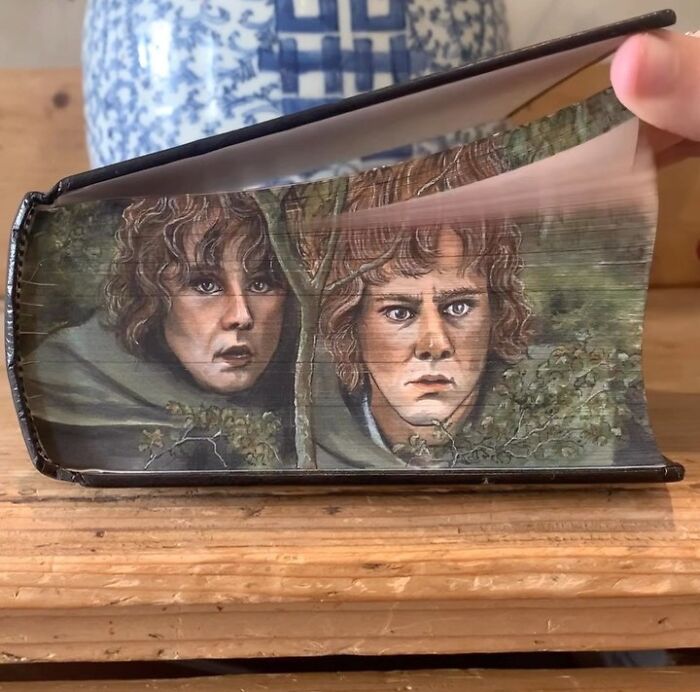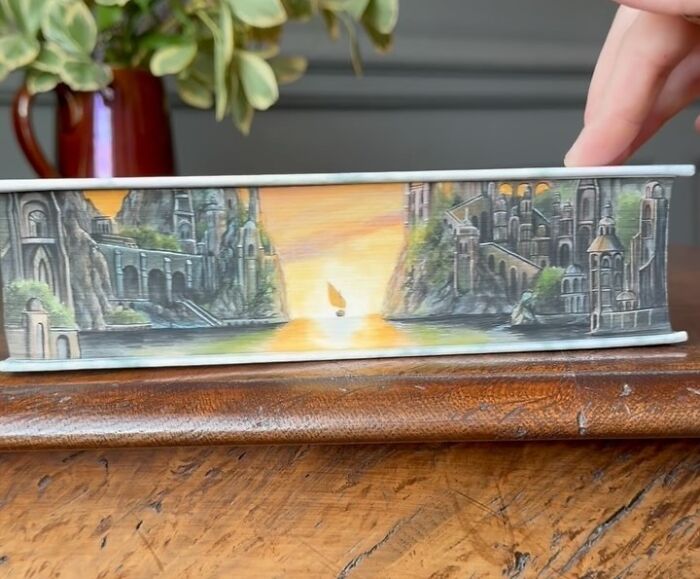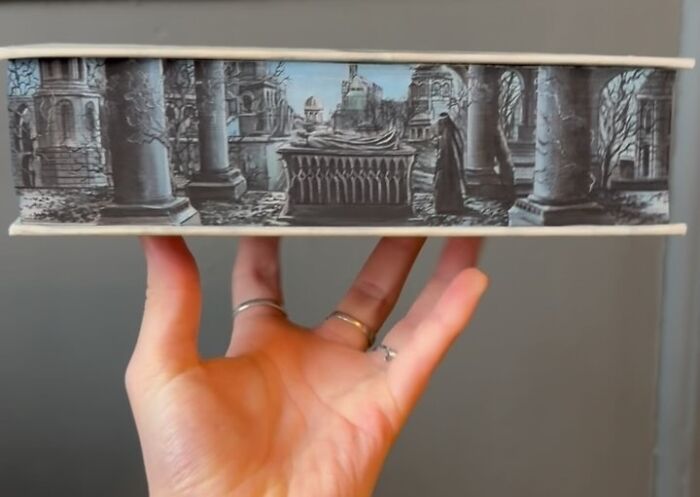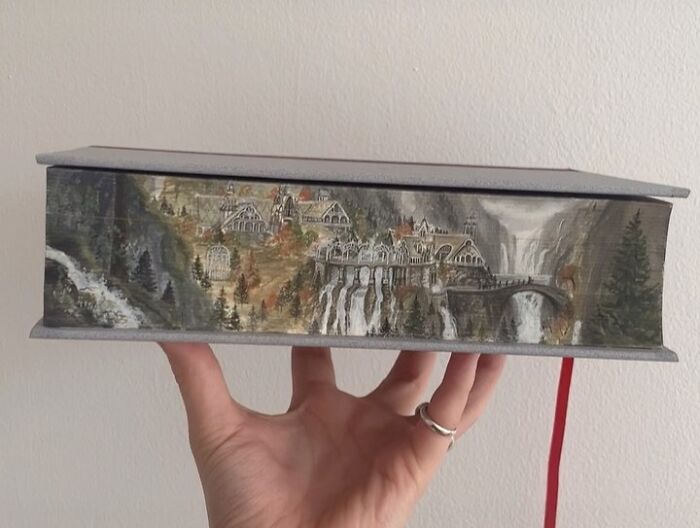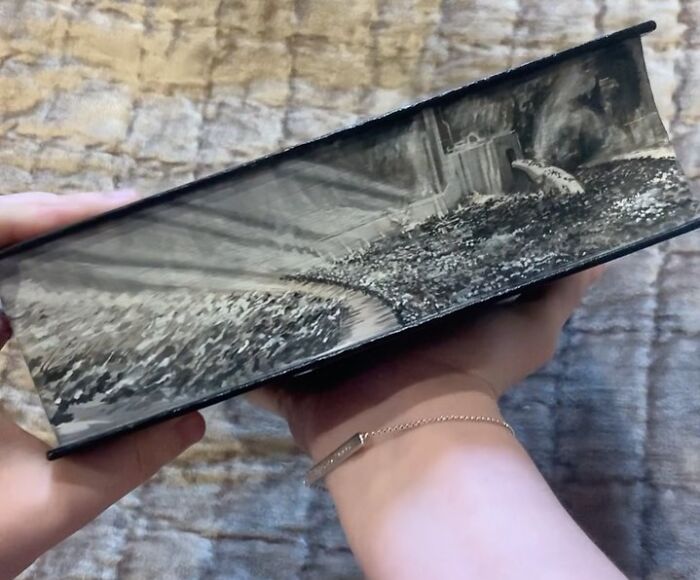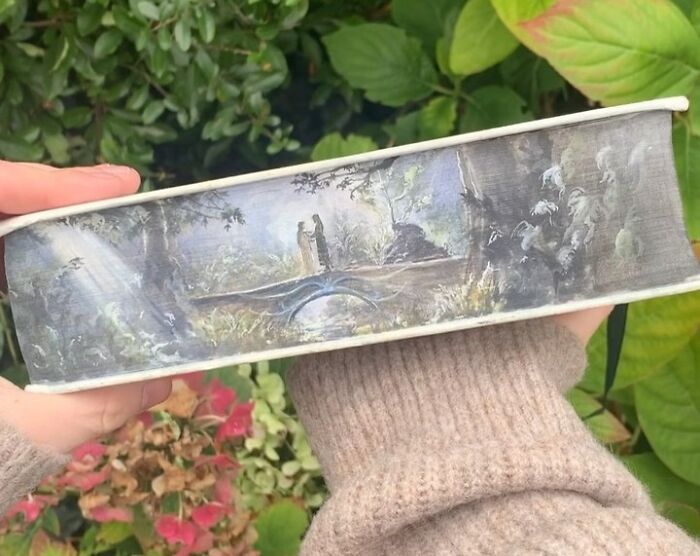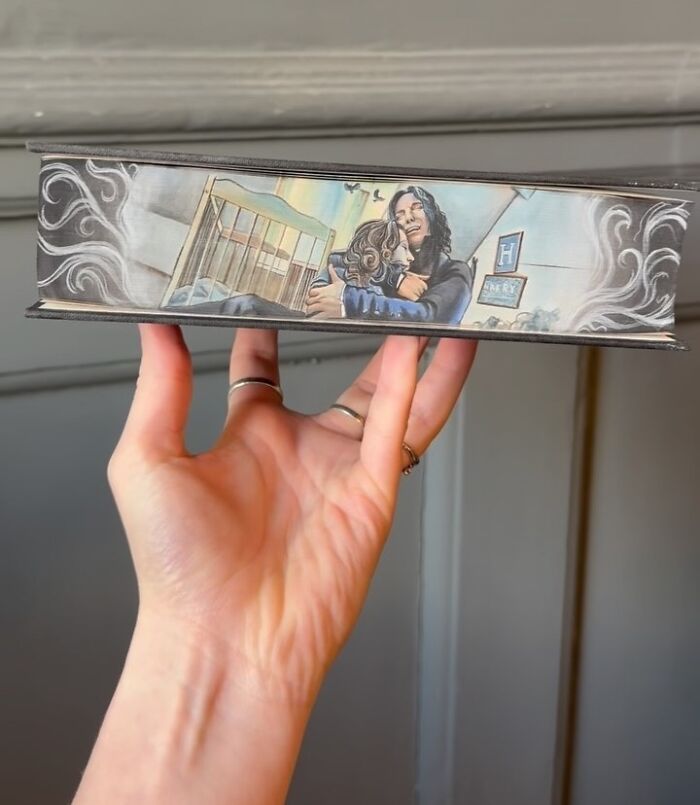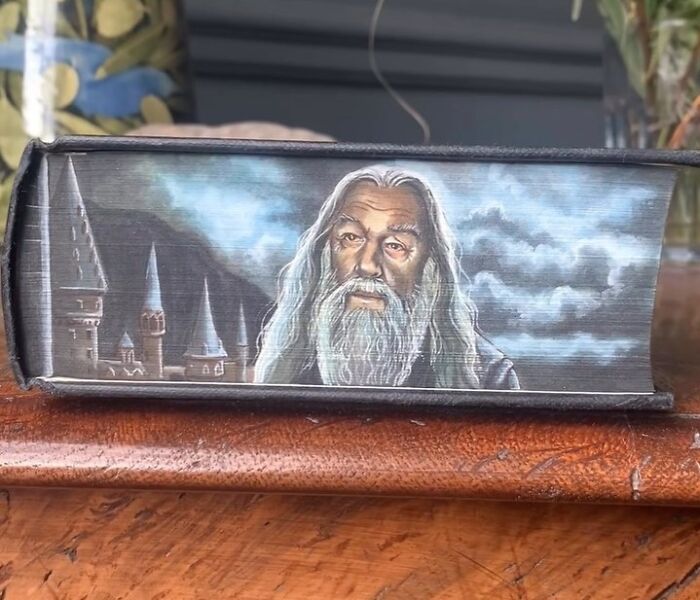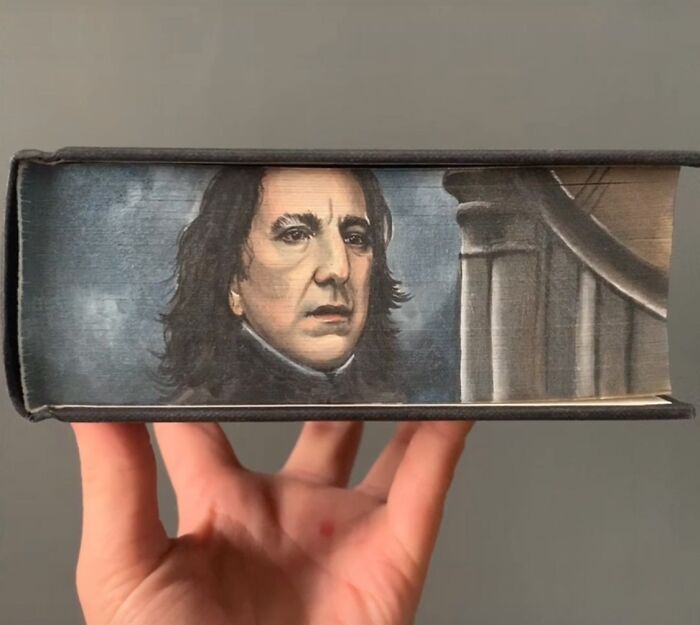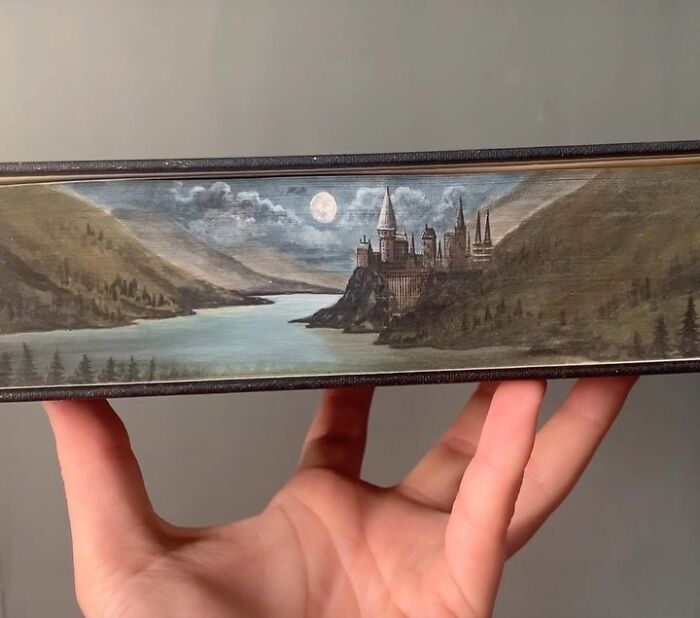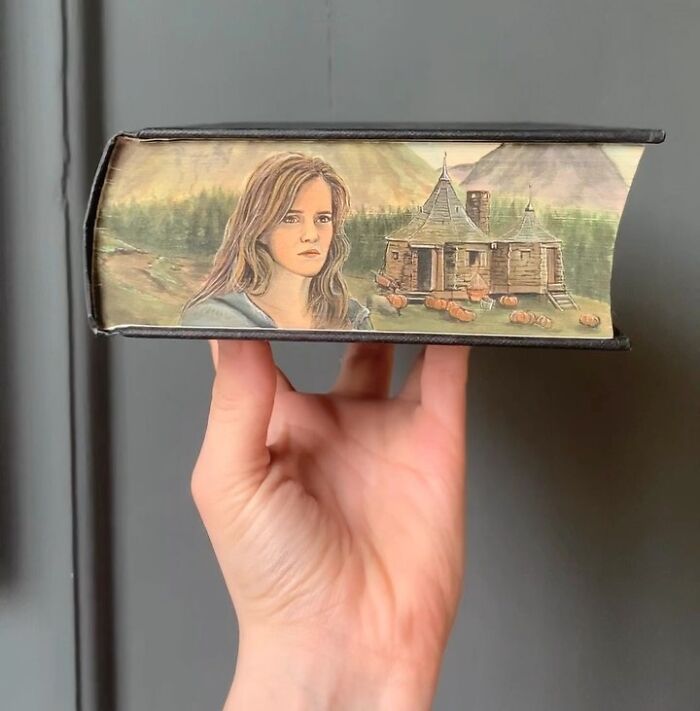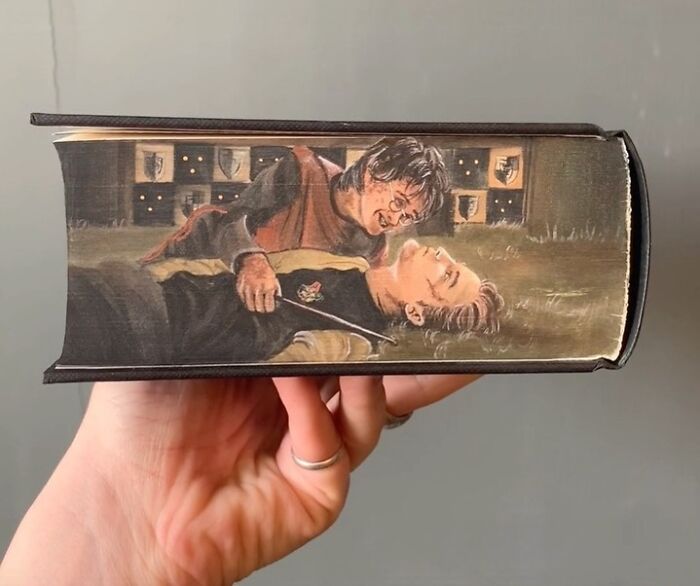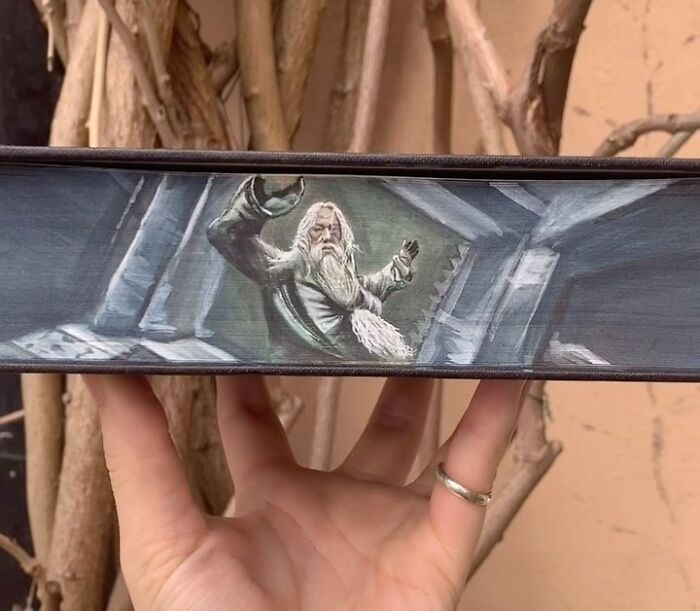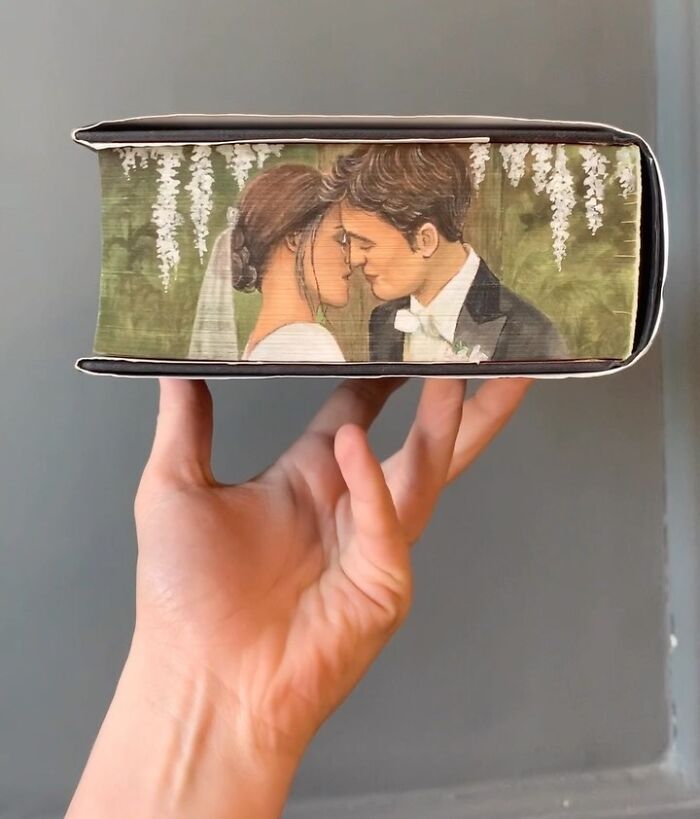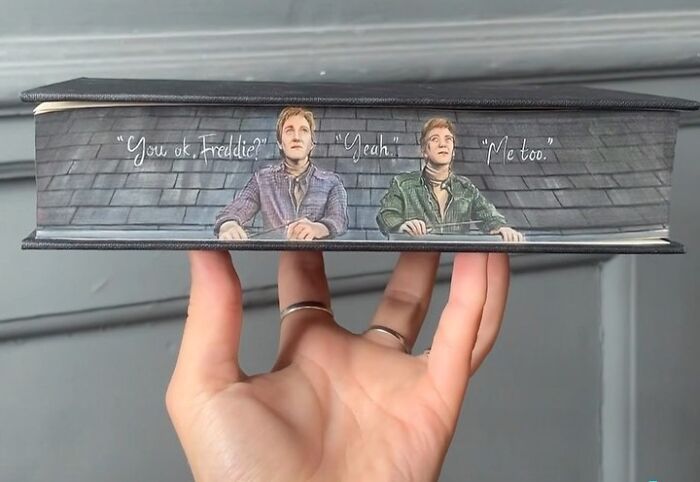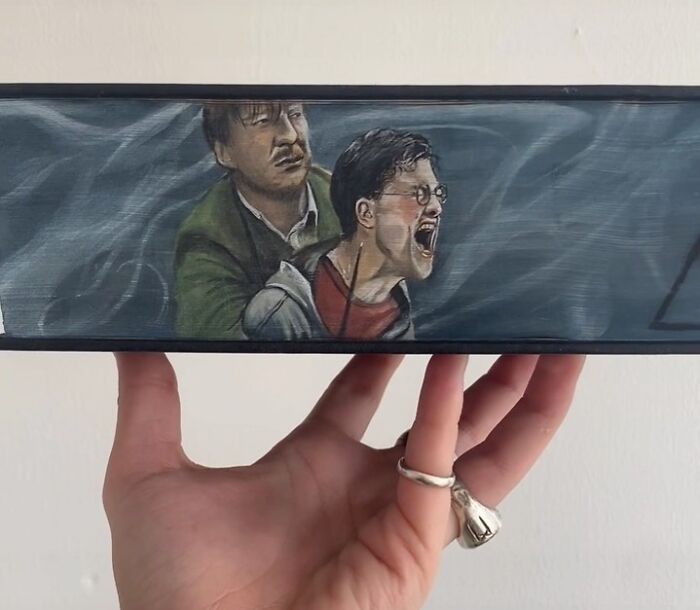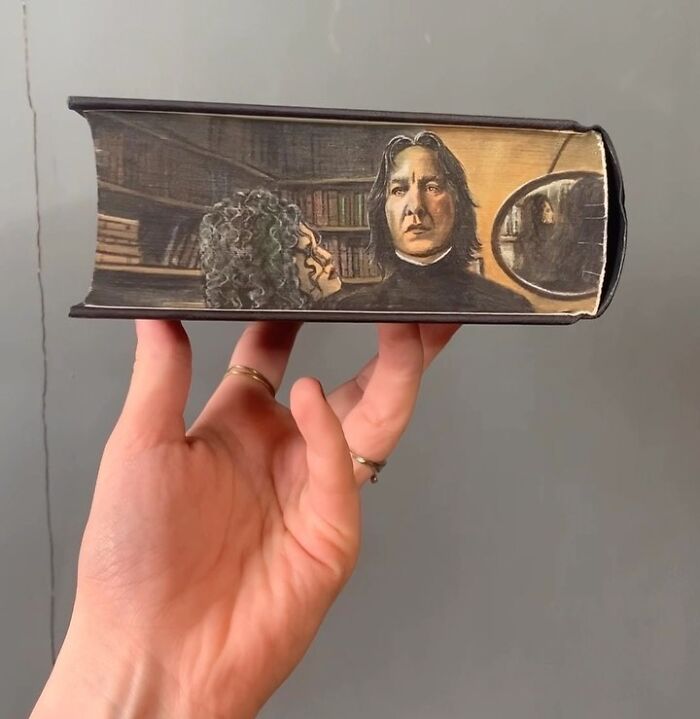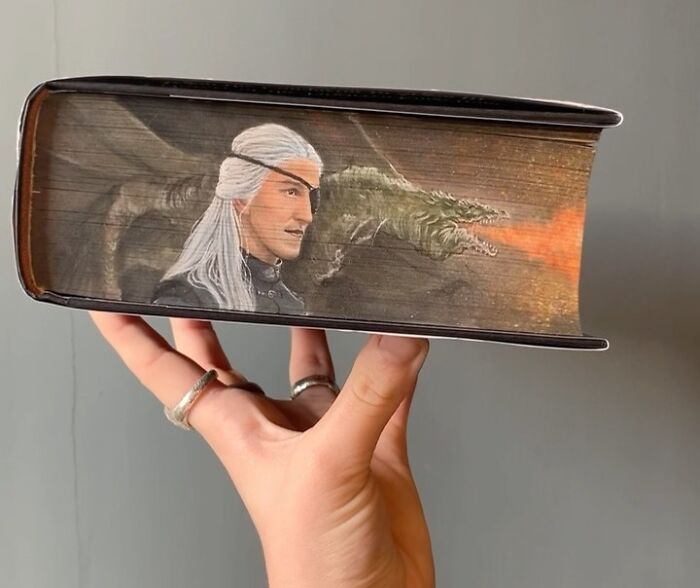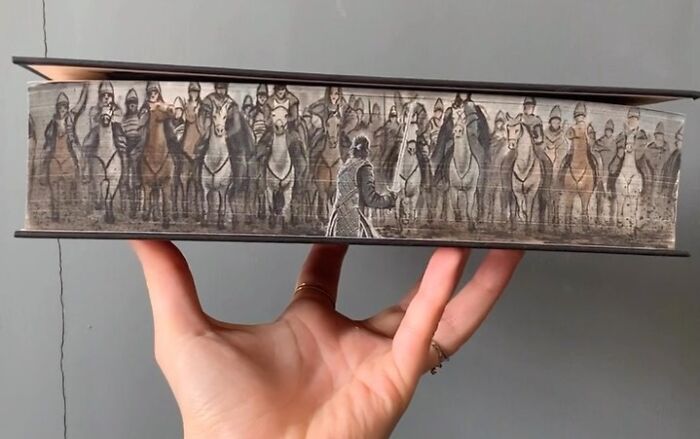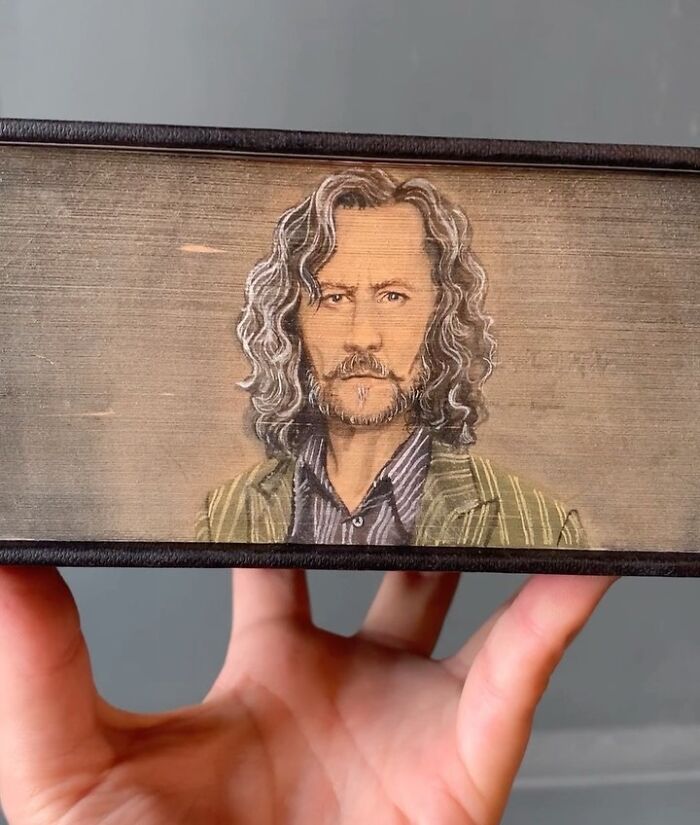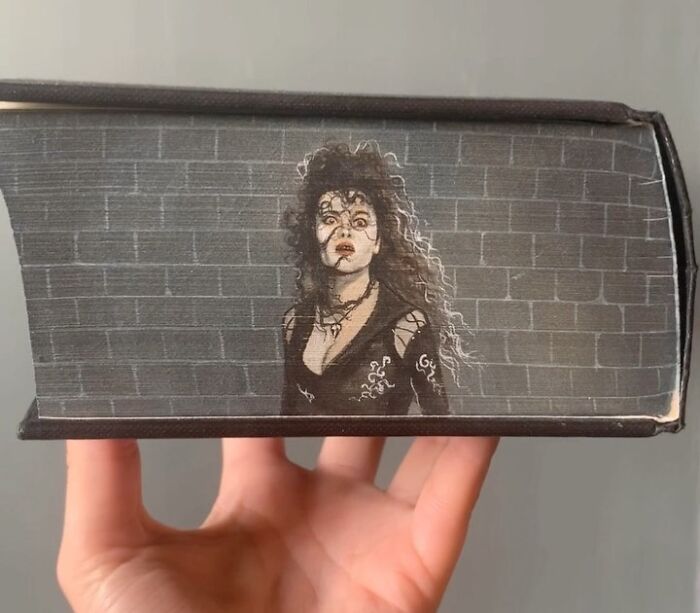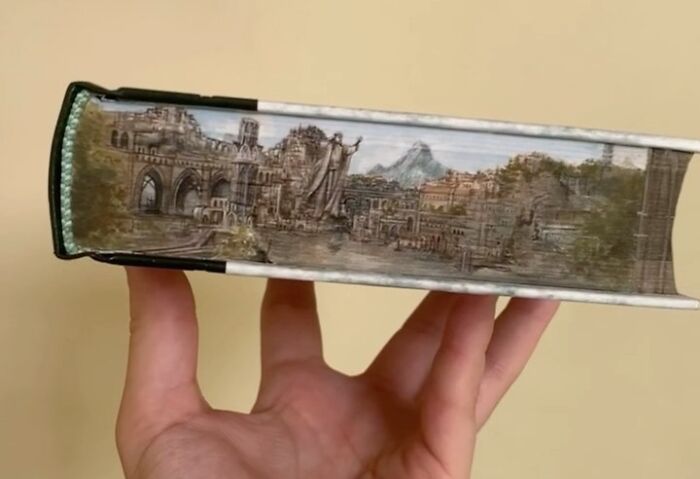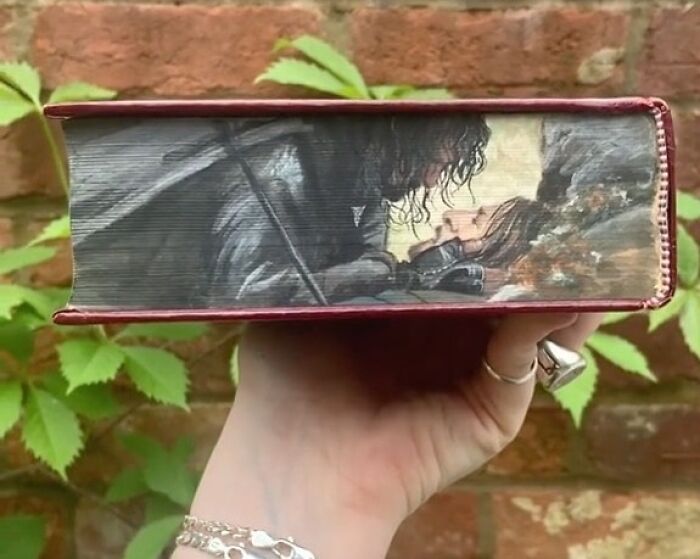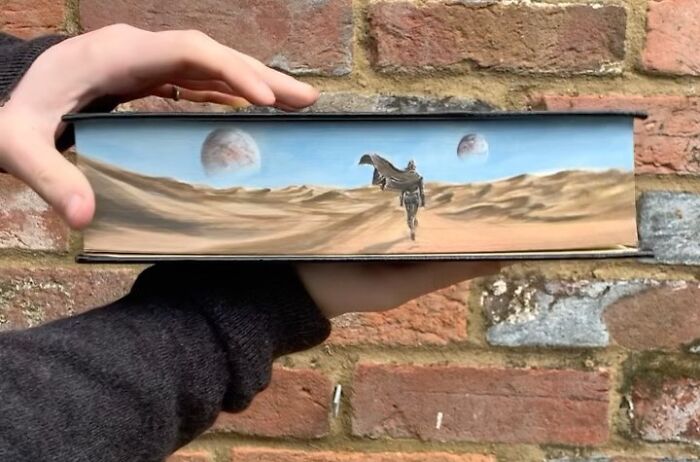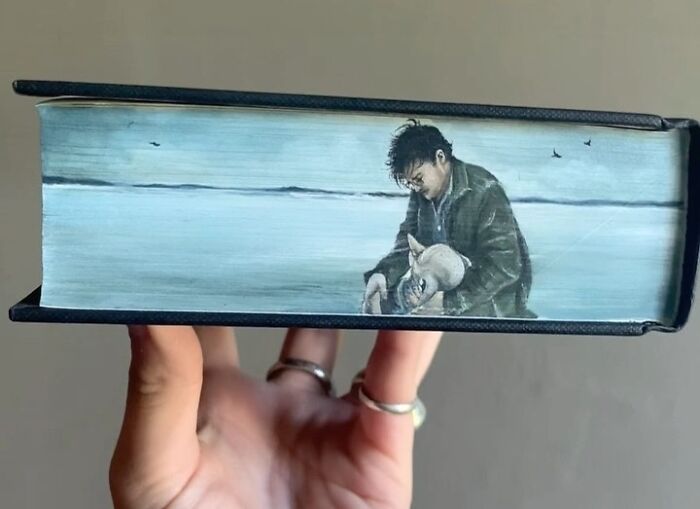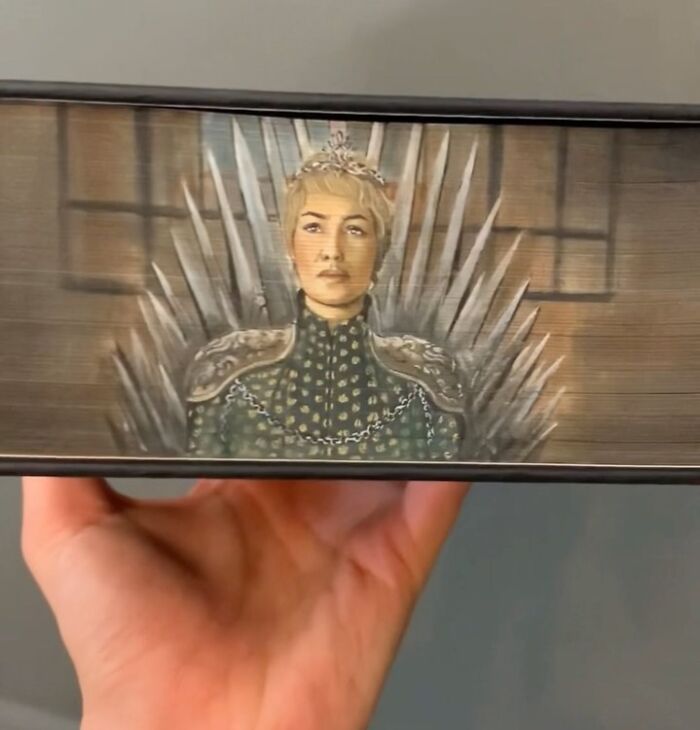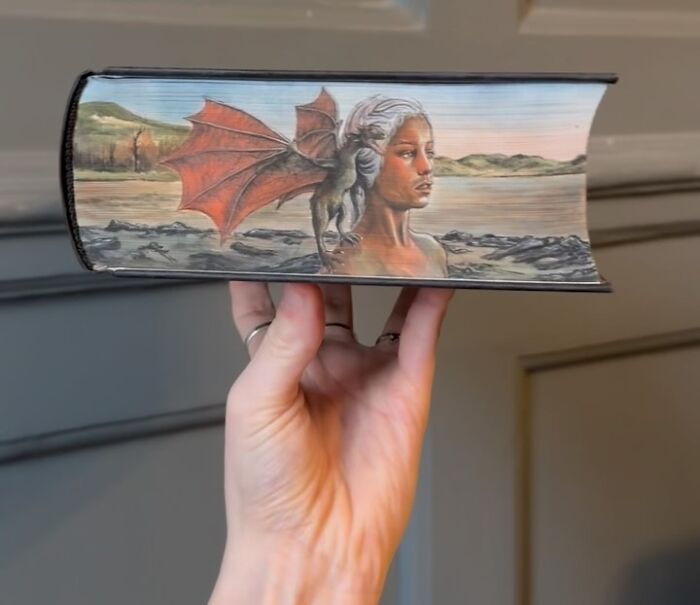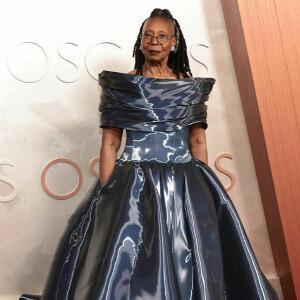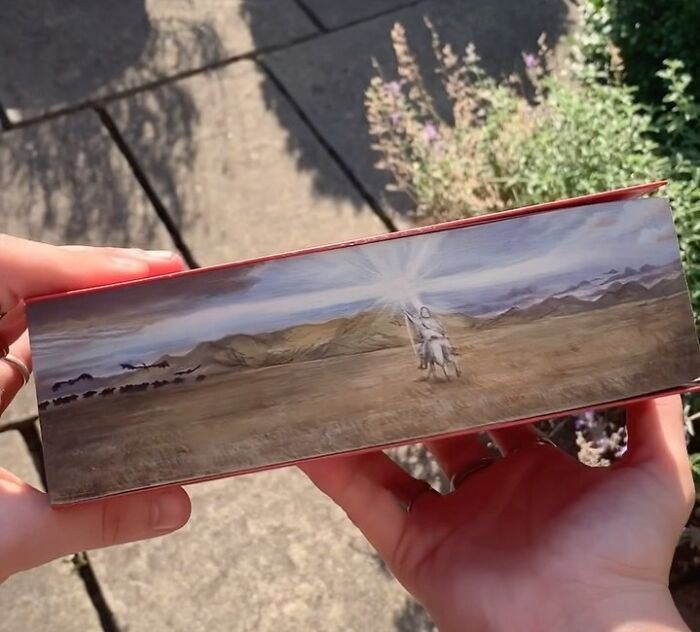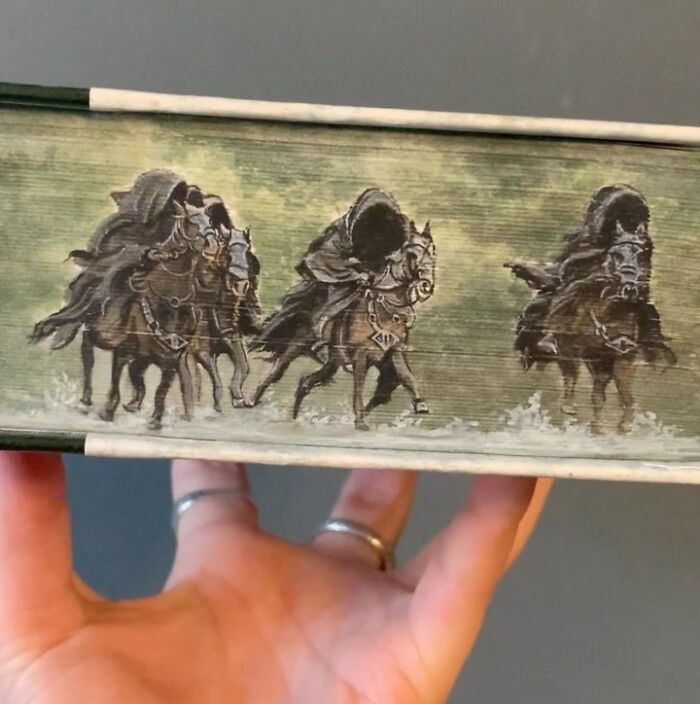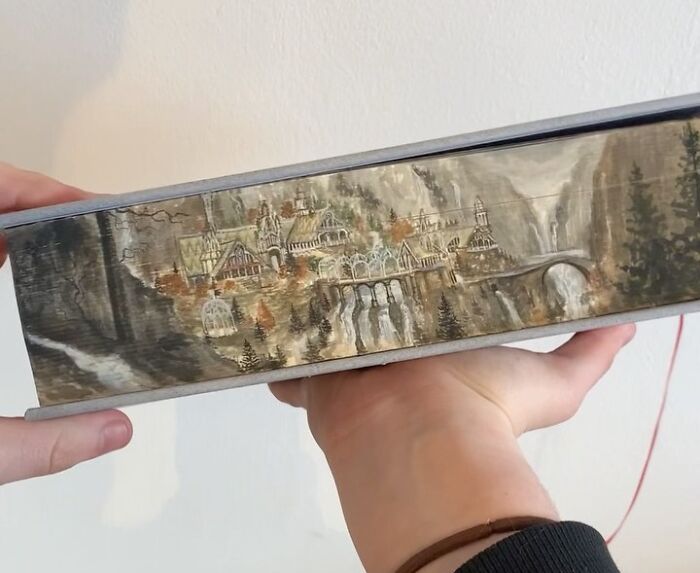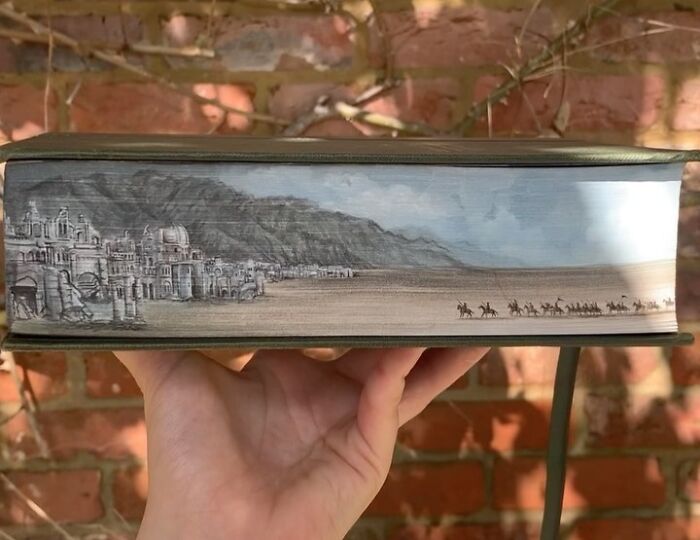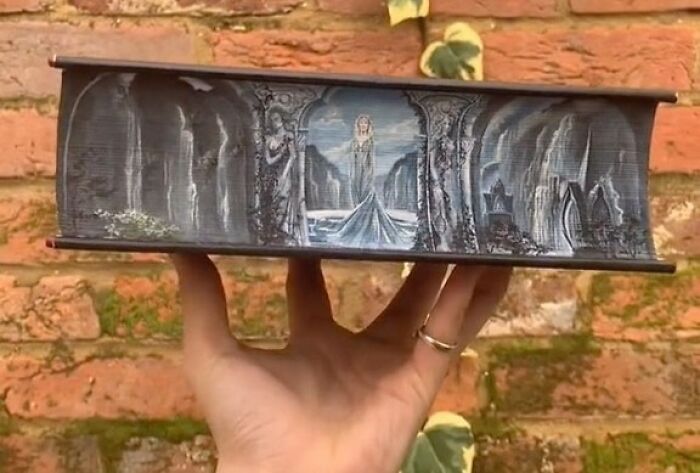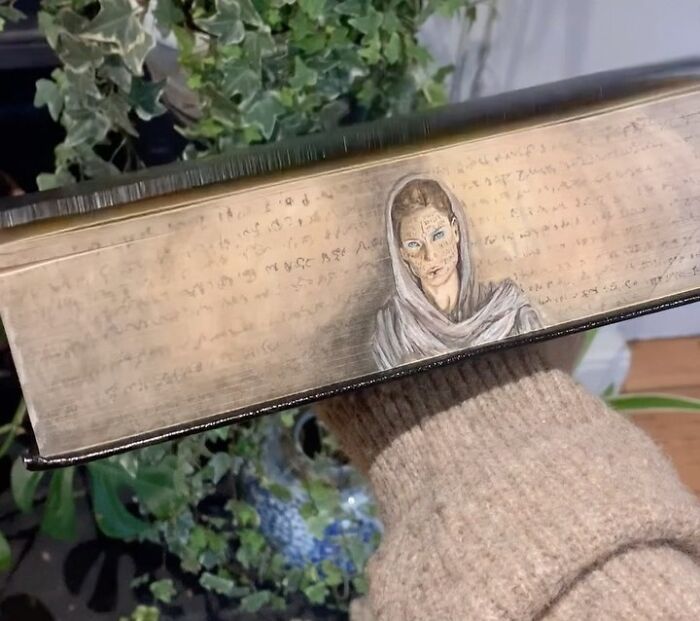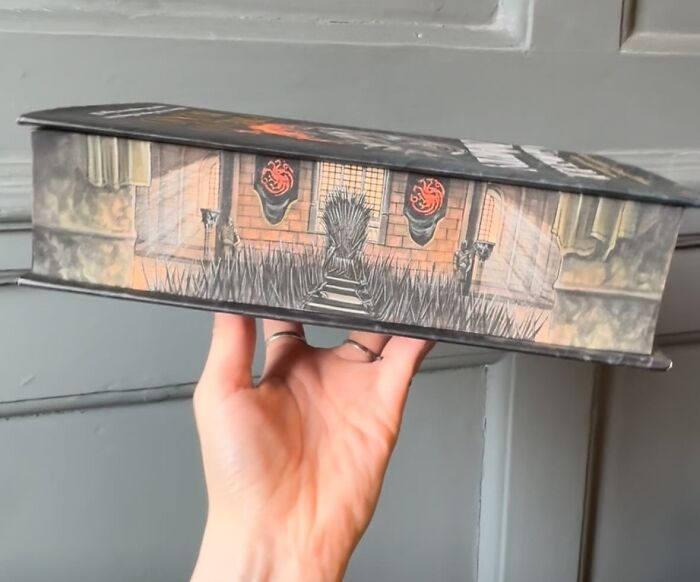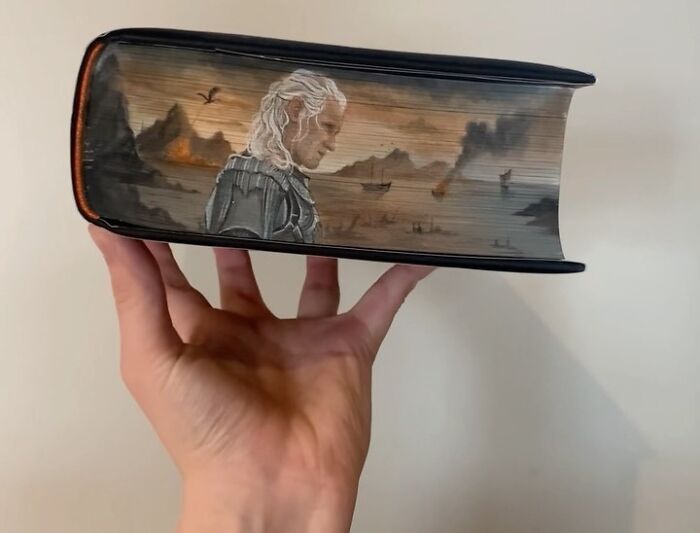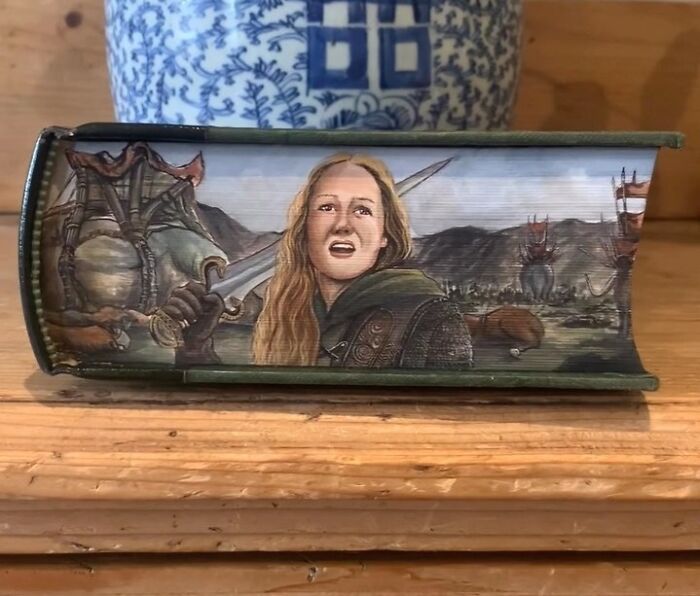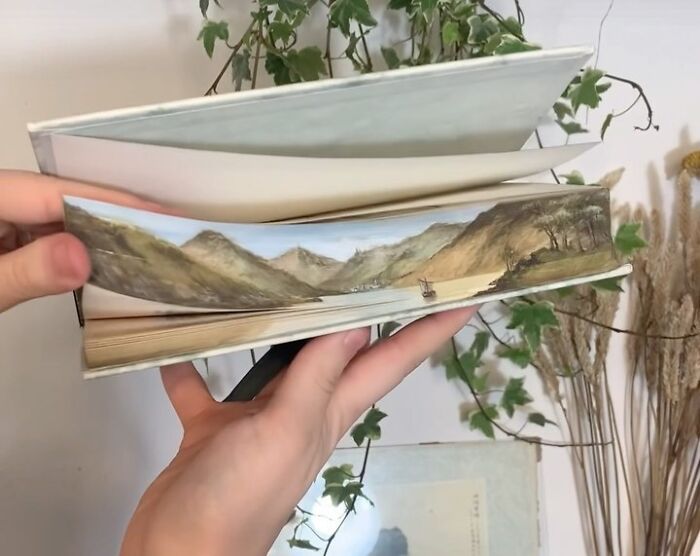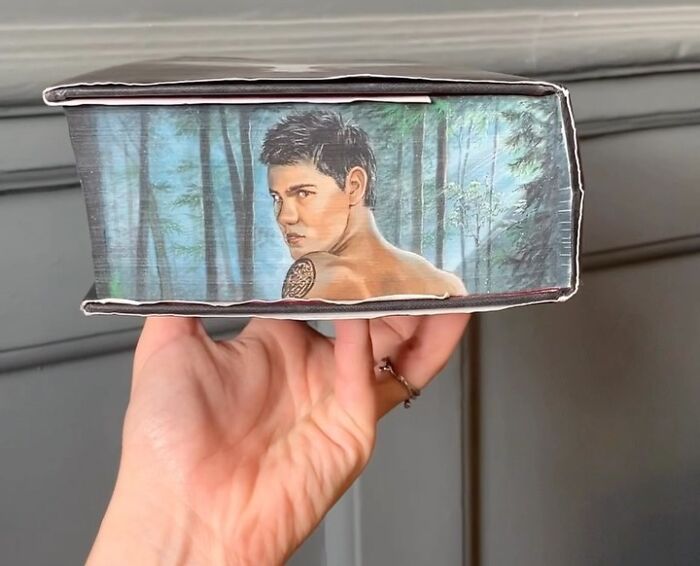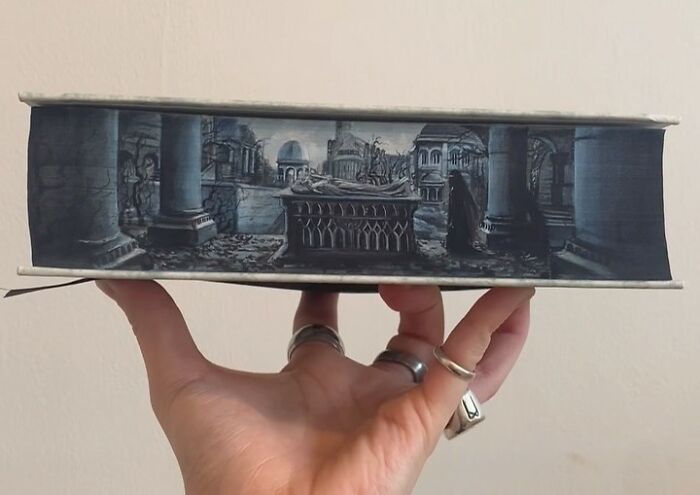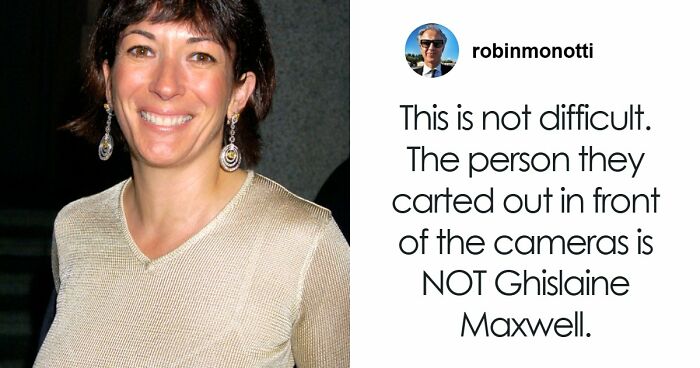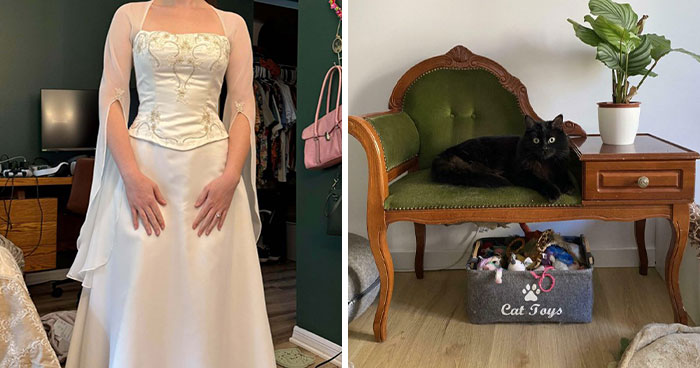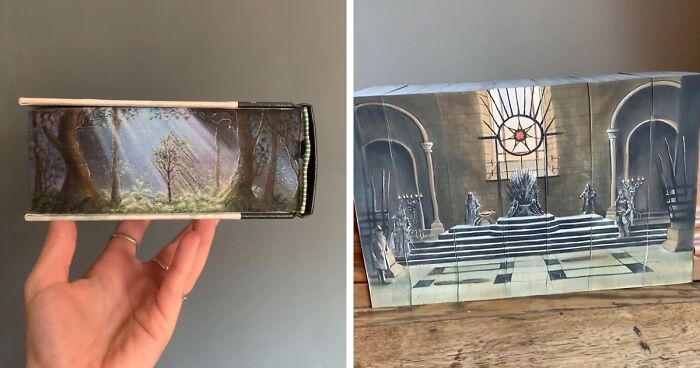
30 Magical Drawings On The Edges Of Popular Books Featuring Famous Scenes Done By This Artist
Interview With ArtistAs the saying goes, don't judge a book by its cover, but how about fore-edge paintings? Well, in this case, Maisie Matilda does a great job of selling them by adding magical drawings to literary classics such as The Lord of Rings trilogy, Dune trilogy, Harry Potter series, and others.
Maisie's drawings haven't gone unnoticed, and as of today, the artist has over 600K followers on Instagram and 1 million on TikTok. Maisie draws on all the sides of the books and showcases the final result in a video format. Her detailed illustrations represent famous scenes, characters, or quotes that true fans will recognize in a heartbeat.
More info: Instagram | Etsy | tiktok.com
This post may include affiliate links.
Bored Panda reached out to Maisie, who kindly introduced herself and told us more about her interest in such a unique art form.
“My name is Maisie Matilda, I am from the UK and I am a fore-edge painter. I have always loved art and painting, and I have a degree in History of Art.”
Maisie continued by explaining what initially drew her to the world of fore-edge painting.
“I had come across fore-edge painting when studying medieval art for my degree, often seeing religious depictions on bibles. But during lockdown, I saw another fore-edge painter called BriMariePaints, who painted a scene on Pride and Prejudice and immediately felt drawn to it. I have always loved Tolkien so I decided to give it a go on an old copy of The Hobbit.”
Maisie also described the process of creating her fore-edge paintings and shared what challenges she usually faces.
“Creating a fore-edge painting is actually not as daunting as it looks. Although you do have to get used to the surface that you are painting on, once you come to understand the techniques, it's really quite easy! One of the challenges is, of course, the size of the surface you are working on. I was used to painting complex landscapes on big canvases, however, I always found myself obsessing over tiny details, so being able to work on a smaller scale and get really invested in miniaturism was very liberating. Using scenes from my favorite books also works very well for me, as I have ADHD so to be able to have so many things that I love amalgamated into one craft satisfies my scatterbrain.”
"The Lord of the Rings," a novel by John Ronald Reuel Tolkien.
We were curious to know how Maisie selects the books for her artwork, and what criteria influence her choices. She shared: “I often select fantasy novels as I have always had a love for them. Dragons, elves, and castles are just so exciting to me, and I love going a bit mad with the fantastical elements, especially playing with light. My favorite thing to paint has always been natural landscapes, so painting big twisting trees and cascading waterfalls (featured in so many fantasy novels) is so much fun.”
Fore-edge painting is a traditional art form with a rich history. Therefore, we asked Maisie to share how she sees herself contributing to the evolution of this art form.
Maisie wrote: “Fore-edge painting has a rich history, but it is a dying craft. It is currently on the Red List of Critically Endangered Crafts as deemed by the Heritage Crafts Association UK. That's another reason why I use recognizable and well-loved media so that I can get people interested and then bring the craft back into popular culture. It’s sort of like a cheat code. People love books, and they love films. Why not combine them into one?! One of the reasons why fore-edge painting died out is because it is expensive and it takes time, so with the rise of consumerism and mass production, handmade crafts can fall behind. I try to combat this problem by using secondhand books to give old things a new life and reduce waste, even if only in a small way.”
And lastly, Maisie added: “I did an Art Foundation course before I went to university, and whilst it was incredibly fun, I was so often discouraged from older styles of art. I love the Renaissance, Romantic, and Rococo eras of art, but I was made to believe there wasn’t a place for that in the art world anymore. Instead, I was being pushed towards more current and funkier styles of art like digital media and graphic design.
Thank goodness I’m stubborn by nature, so I refused to comply with that at the frustration of my tutors. So I kept painting my traditional Bierstadt-esque landscapes. And now, here I am doing just that, only instead it’s on the side of a book rather than a canvas. I know they’re not avant-garde, and I won’t be getting a place in any London galleries, but I use social media instead where I have connected with lots of fellow fantasy nerds and book fanatics.”
"The Lord of the Rings," a novel by John Ronald Reuel Tolkien.
"Harry Potter and the Half-Blood Prince," a novel by J. K. Rowling.
"The Lord of the Rings," a novel by John Ronald Reuel Tolkien.
"The Lord of the Rings," a novel by John Ronald Reuel Tolkien.
"Harry Potter and the Deathly Hallows," a novel by J. K. Rowling.
"Harry Potter and the Deathly Hallows," a novel by J. K. Rowling.
"Harry Potter and the Deathly Hallows," a novel by J. K. Rowling.

 Dark Mode
Dark Mode 

 No fees, cancel anytime
No fees, cancel anytime 


